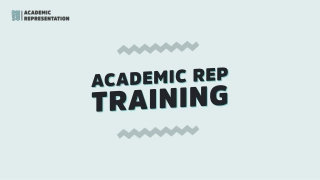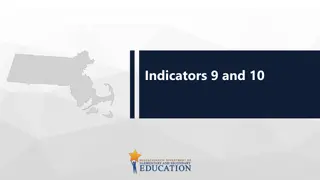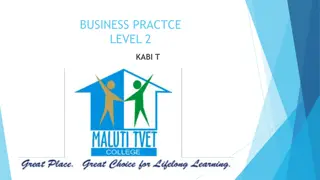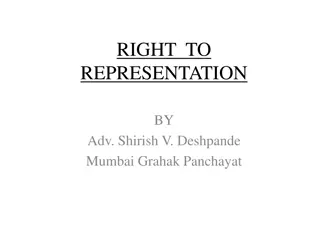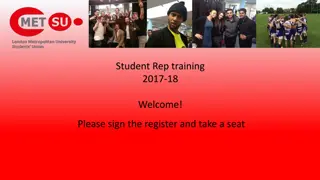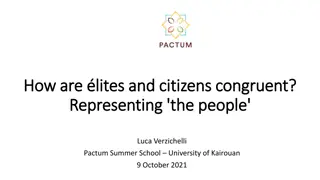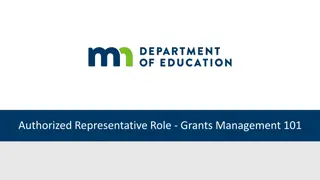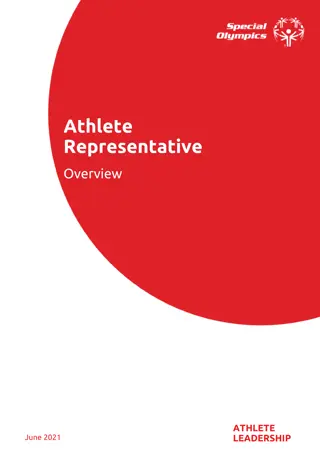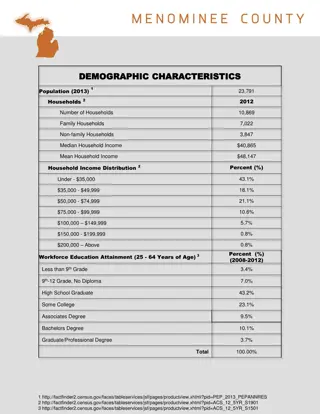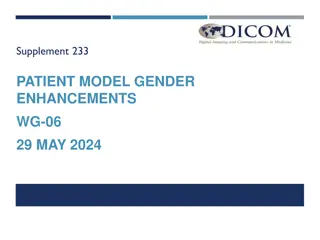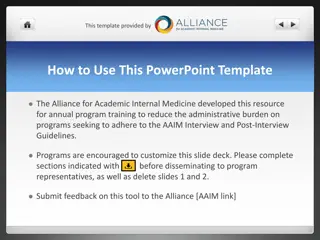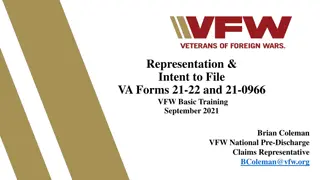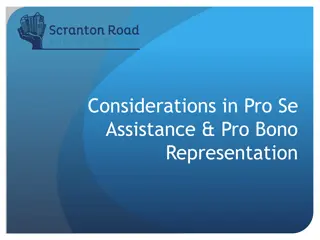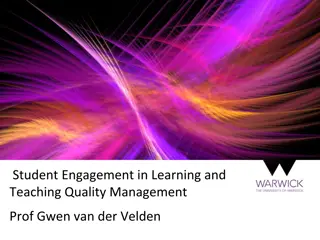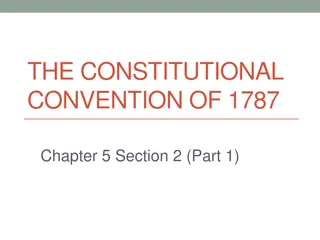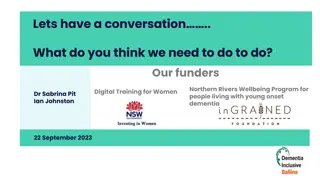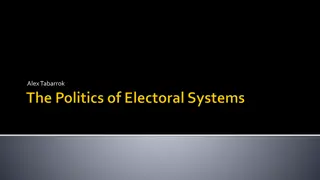Student Representation Training Program: Empowering Class Representatives
In this comprehensive training program for incoming class representatives, participants will learn essential skills such as effective communication, feedback collection, and advocacy. The course covers the role and benefits of being a class rep, communication techniques, and the representation structure within the school management. Participants will have the opportunity to develop their skills, make a positive impact on student life, and enhance their employability. The training program aims to empower class representatives to be effective advocates for their peers and contribute to a positive student experience.
Download Presentation

Please find below an Image/Link to download the presentation.
The content on the website is provided AS IS for your information and personal use only. It may not be sold, licensed, or shared on other websites without obtaining consent from the author.If you encounter any issues during the download, it is possible that the publisher has removed the file from their server.
You are allowed to download the files provided on this website for personal or commercial use, subject to the condition that they are used lawfully. All files are the property of their respective owners.
The content on the website is provided AS IS for your information and personal use only. It may not be sold, licensed, or shared on other websites without obtaining consent from the author.
E N D
Presentation Transcript
STUDENT REPRESENTATION Core Training for incoming CLASS REPRESENTATIVES
OUTLINE AND LEARNING OUTCOMES The role and benefits of being a class rep Learn about the communications cycle and how to use it After today you should be able to: Identify effctive ways to collect feedback from your fellow students How to analyse feedback collected Effectively present feedback to staff in a professional setting Identify ways to keep your classmates informed of developments
THE ROLE AND BENEFITS OF BEING A CLASS REP Representation is the process where one person or a group of people act, speak, or be present on behalf of another person or group.
AS A CLASS REPRESENTATIVE YOU WILL HAVE THE OPPORTUNITY TO: Develop Meet Gain Make Enhance Develop advocacy, communications, and meeting skills Meet new people and network with different stakeholders Gain a class rep certificate Make a real difference to your student experience, as well as a positive difference to other students lives Enhance your CV and employability
THE REPRESENTATION STRUCTURE Senior School Management (ADL&T/Dean/School Manager) School President School Board Learning and Teaching Committee Quality and Academic Standards Committee etc. Vice President Discipline Leads/ADL&T Student and Staff Liaison Committee Staff and Class Representatives Module/Programme leads
LUCIE Listen, Understand, Change, Implement, Evaluate
COMMUNICATIONS CYCLE Stage One Gather feedback from students Stage Four Feedback outcome(s) back to students Stage Two Prepare to present your feedback Stage Three Present your feedback to the right person(s) at the right time(s)
STUDENT VOICE Why is feedback important? Enhances student experience Meets national quality arrangements Identifies what works well Allows collaborative development Identifies areas of improvement
CLOSING THE FEEDBACK LOOP Introduce Feedback Collate Solutions Present
HOW TO COLLECT FEEDBACK How can you get feedback from students? Microsoft Teams Email Groups Survey Informal discussion Social Media What other ways might you use to gather feedback from students? (VLE, collaborate, discord etc.)
CONFIDENTIALITY AND PERSONAL DATA Personal data only includes information relating to a person who: can be identified or who are identifiable, directly from the information in question; or who can be indirectly identified from that information in combination with other information.
What questions should I ask to collect quality feedback? Usinggood questioning technique will help you gain useful information. COLLECTING FEEDBACK Closed Open Probing There are 3 main types of question: Using well-structured questions will allow you to get specific and detailed information from your classmates
Who? know who you are presenting it to, know your audience Why? why is the evidence important PRESENTING YOUR FEEDBACK Outcome? have recommendations prepared Knowledge? make sure you know what you are talking about
FEEDBACK SCENARIO You ve been waiting for your mark and feedback on an essay for six weeks. Finally, you get the feedback. The common consensus in the class is that the small bit of feedback that everyone got wasn t particularly helpful and that the marks were not in keeping with how they had performed throughout the year. Several students approach you about this issue. How do you resolve it?
KEY MEETING(S) Student-Staff Liaison Committee Discuss feedback to enable staff to seek students' views on any aspect of the SLE via the Class Reps External examiners Seek views to enable students to contribute to the shape of their learning experience through their Class Rep Shape learning to report and make recommendations to School committees and/or any other relevant University body
MEETING ETIQUETTE BE INFORMED Location? Time? Date? Always be ON time Confirm availability BE PREPARED Bring a notebook/laptop to take notes Think about how to present your data AFTER THE MEETING Report back to your classmates Follow up on areas of concern
PRESENTING FEEDBACK = Effective Meetings + C D A + B + Assertive Balanced Constructive Depersonalised
COMMUNICATION TIPS TRY TO AVOID INTERRUPTING OTHERS. ALLOW SPEAKERS TO COMPLETE THEIR THOUGHTS BEFORE INTERJECTING. TRY TO USE HAND-OUTS OR OTHER VISUAL AIDS TO PRESENT DETAILED INFORMATION OR IDEAS. TRY TO MAINTAIN OPEN BODY LANGUAGE AND TRY TO AVOID CROSSING YOUR ARMS TO SHOW YOU ARE OPEN TO THE CONTRIBUTIONS OF OTHERS. TRY TO ACT IN AN EMPATHETIC MANNER TO OTHERS, EVEN WHEN YOU DISAGREE WITH WHAT THEY THINK. TRY TO MAKE OCCASIONAL EYE CONTACT WITH SPEAKERS TO SHOW THAT YOU ARE INTERESTED AND ACTIVELY LISTENING TO WHAT THEY ARE SAYING.
PRESENTING FEEDBACK In groups you will create feedback based on the scenarios you analysed earlier. Utilise the ABCD of effective feedback as best you can. We will share our feedback in the main group afterwards.
ADDITIONAL SUPPORT Enquiry Centre Academic Skills Centre Careers DUSA Elected Executive Academic appeals Advice and Support advice@dusa.co.uk Representation Team vpr@dusa.co.uk Direct access to services sign posting Cover health, wellbeing, admissions, academic support etc. Live Smart guides Learn Smart Guides Toolkit Advice on academic skills Quality Academic Standards Team Help find jobs Interview skills Job opportunities DundeePlus vpa@dusa.co.uk cgourley@dusa.co.uk lmorari@dusa.co.uk abroggi@dusa.co.uk Student Representative Council (SRC) Class Rep handbook
ELECTED EXECUTIVE EMAILS Nyasha (Ash) Mutembwa President president@dusa.co.uk Mubarak Babalola VP Academia vpa@dusa.co.uk Nicole Okoro VP Representation vpr@dusa.co.uk Bernard Aihevba VP Student Welfare vpsw@dusa.co.uk Manaswi Budhathoki VP Community vpc@dusa.co.uk Yaa Agyei-Akwa vpf@dusa.co.uk VP Fundraising Parissa Robinson VP Student Activities vpsa@dusa.co.uk
SCHOOL PRESIDENT EMAILS President.business@dundee.ac.uk Business Conor Heward President.dentistry@dundee.ac.uk Dentistry Matthew Fancourt President.djcad@dundee.ac.uk DJCAD Joanna Walke President.healthsciences@dundee.ac.uk Health Sciences Lucas Fonseca President.hsl@dundee.ac.uk Humanities, Social Sciences and Law Dani McFawns President.hsl@dundee.ac.uk Humanities, Social Sciences and Law Erin MacInnes President.lifesci@dundee.ac.uk Life Sciences Ridvan Kucuk Medicine Dominic Lee President.medicine@dundee.ac.uk Science and Engineering Marlon D'Ambrosio president.scieng@dundee.ac.uk
OUTCOMES Explain why feedback is important and what role you play in the representation system What to focus on and how to collect feedback Analysing the feedback How to effectively present feedback How to feedback to students
FEEDBACK TO US! Thanks for attending! We welcome your thoughts on this training session. Please fill out the survey from the link through the QR code. Any further thoughts - please get in touch. THANK YOU FOR COMING!!


